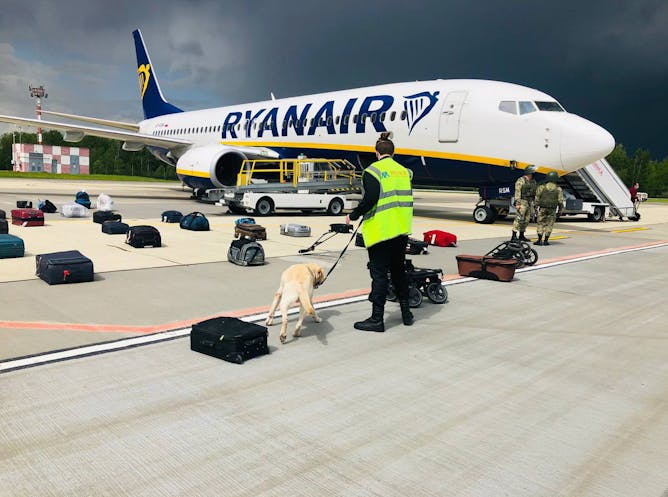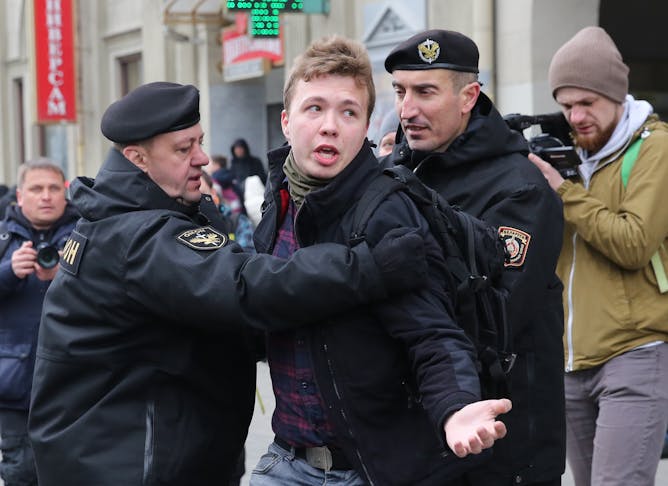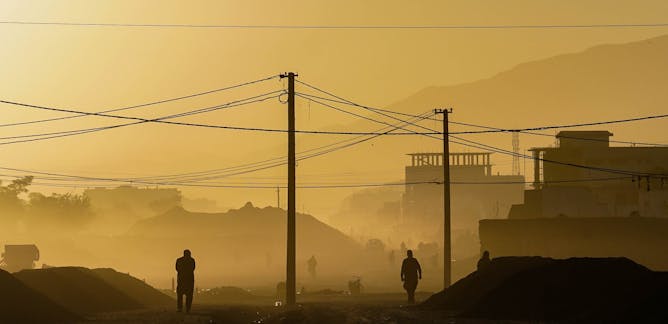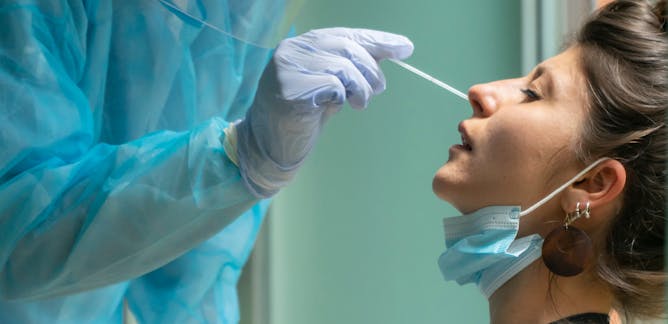|
Since the break-up of the Soviet Union in the early 1990s, Belarus has earned the nickname of the “last dictatorship in Europe”. The country has certainly been living up to that nickname over the past year, fixing elections and locking up dissidents, some of whom – it is reported – are tortured while in detention. But on Sunday it took the outrageous step of forcing a Ryanair flight from Athens to Vilnius in Lithuania to land instead at its capital Minsk, claiming a “bomb threat”. Once the flight had landed, two of its passengers were detained by Belarusian security: one, Roman Protasevich, is a prominent dissident journalist and blogger who
had been living in exile in Poland. The other, his Russian girlfriend Sofia Sapega, is a law student.
The manner of the detentions break a host of international and human rights laws. The EU has already issued sanctions against Belarus, including banning its flights from European airspace.
|

Belarusian security personnel conduct a search of the Ryanair flight from which they took dissident journalist Roman Protasevich.
EPA-EFE/ONLINER.BY HANDOUT
Kanstantsin Dzehtsiarou, University of Liverpool; Arman Sarvarian, University of Surrey
Can Belarus claim to have been within its rights to divert a Ryanair flight and detain passengers?
|

Thorn in Lukashenko’s side: Roman Protasevich arrested at a rally in Minsk, March 2017.
EPA-EFE/Tatyana Zenkovich
Jennifer Mathers, Aberystwyth University
Fears grow for the young dissident journalist after he was taken off a Ryanair flight.
|
Business + Economy
|

Ian Goldin, University of Oxford
It's been argued that pandemics are the great leveller, but with COVID the opposite is true – and we can't afford to ignore it.
| |

Mehdi Shiva, University of Oxford
The infrastructure and levels of deprivation in poorer countries have prevented them from benefiting from containment measures as much as richer nations.
|
|
|
Health + Medicine
|

Gabriel Recchia, University of Cambridge
How likely are false positives or negatives when you take a PCR test for COVID?
| |

James Wright, Alan Turing Institute
Police, private security and sporting events are turning to a growing but largely unregulated industry that claims its technology can detect suspicious individuals.
|
|
|